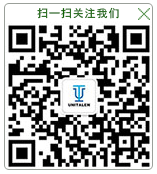The Revisions of Anti-Unfair Competition Law of China
January 11, 2018Author: Dan Chen, Unitalen Attorneys at Law
On December 1, 1993, China's first Anti-Unfair Competition Law (“AUCL”) came into effect. 24 years later, on November 4, 2017, the NPC Standing Committee of the People's Republic of China passed the newly revised AUCL, which comes into force on January 1, 2018.
This report focuses on the revised provisions associated with protection of intellectual property rights.
- Article 2, Paragraph 2
For the purposes of this Law, "acts of unfair competition" refers to acts of operators during production and business operation that violate the provisions of this Law, disrupt the order of market competition and damage the legitimate rights and interests of other business operators or consumers.
In this principal clause of the AUCL, "whether the legitimate rights and interests of consumers are damaged" is added as one of the considerations in evaluating whether the competition is proper or not.
- Article 6
Business operators shall not commit the following acts of confusion to mislead a person into believing that a commodity is of another party or has connection with another party:
(1) Using without permission a label identical with or similar to the name, packaging, or decoration, among others, of another party's commodities that have certain influence.
(2) Using without permission another party’s company name (including abbreviation, trade name, etc.), social organization name (including abbreviation, etc.), or person name (including pseudonym, stage name, name translation, etc.) that have certain influence.
(3) Using without permission the principal part of another party’s domain name, website name, or web page, among others, that have certain influence.
(4) Other acts of confusion sufficient to mislead a person into believing that a commodity is of another party or has connection with another party.
Misleading is defined as the essential precondition of various confusion acts. At the same time, the scope of misleading is extended from "misleading a person into believing that a commodity is of another party” to "misleading to a person into believing that a commodity has particular connection with another party”.
However, it shall be noted that, with Item (1) amended from "unique name, packaging and decoration of well-known products" to "the name, packaging, or decoration, among others, of another party's commodities that have certain influence”, the uniqueness requirement is not necessarily removed. The 2007 judicial interpretation of Supreme Court gives clear guidance on how to determine “unique name, packaging and decoration of well-known products” and this is still effective in conjunction with the new AUCL. Meanwhile, the wording of "among others" is added to increase flexibility of application if new subject requires protection in future.
Item (2) of this article clearly defines the condition of "having certain influence" for protection of company name, social organization name, or person name, and specifies the scope of protectable company name to include abbreviation, trade names and so on.
By Item (3), the new AUCL incorporates internet confusion to strengthen the protection of business marks under internet environment.
The Miscellaneous provision under Item (4) is newly added to give room for other possible confusion acts that cannot be covered by (1)-(3).
- Article 8
Business operators shall not deceive or mislead consumers through false or misleading commercial publicity in respect of the performance, functions, quality, sales status, users’ review, and honors received of its commodities.
… …
Highlight in this Article is the change of “false” and “misleading” from concurrent conditions to alternative conditions, to lower the standard for determining false advertisement.
- Article 9
Business operators shall not conduct the following activities violating trade secrets:
(1) To Procure the right owner’s trade secrets through theft, bribery, fraud, intimidation or other improper means;
(2) To disclose, utilize or allow others to utilize the right owner’s trade secrets acquired by means mentioned in the preceding paragraph;
(3) To disclose, utilize or allow others to utilize the trade secrets in their possession, in breach of agreement or violation of the right owner’s confidentiality requirement.
Where a party knows or should know that employees, former employees of the trade secret right owner, or other organizations and individuals conducted illegal activities specified in the preceding paragraph and still procures, discloses, utilizes or allows others to use the trade secret, such conduct shall constitute violation of trade secrets.
The term "trade secrets" under this Law refers to the technical and operational information that is not known to the public, has commercial value and has been subject to protection by the right owner with corresponding confidentiality measures.
The new AUCL changes the definition of trade secrets from "creating economic benefits" and "having practicality" that were difficult to determine in practice to “having commercial value" that could be determined more easily, and specifies acts of trade secret violation, especially covering the act of acquiring trade secrets by former employees, which was often found in practice.
- Article 17
… …
Where a business operator violates the provisions of Article 6 and Article 9 of this Law, and the actual losses caused to the right owner and the profits obtained by the infringer via infringement are hard to determine, the people's courts shall, according to the circumstances of the infringement, decide a compensation to the right owner of up to 3 million yuan.
… …
Consistent with the Trademark Law, the maximum of statutory damage is set at 3 million yuan.
- Article 18
… …
If the company name registered by a business operator violates Article 6 of this Law, it shall promptly change the company name at the registry; before the name is changed, the registration authority shall use its unified social credit code in replacement of the company name.
This, to some extent, addresses the practical difficulty in implementing decisions or judgements concerning company names.




